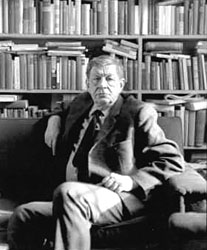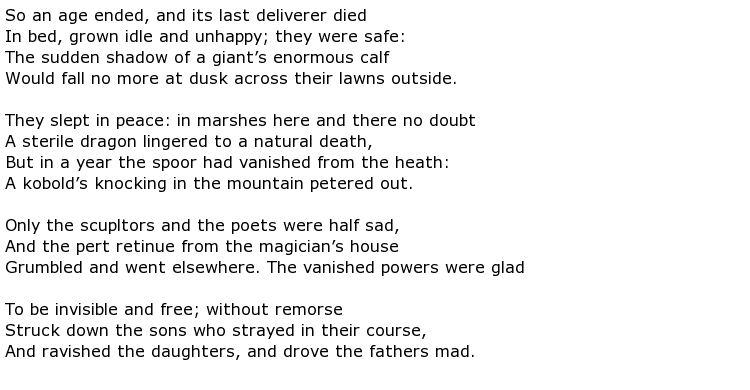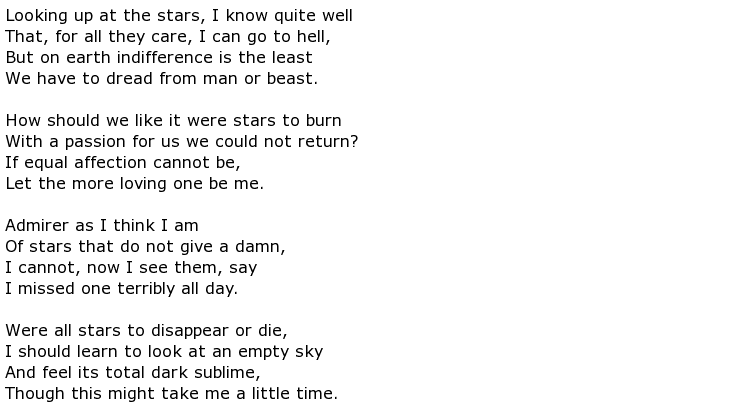 Poet Wystan Hugh Auden, better known as W.H. Auden, imbued his poetry with a style and sensibility that elevated him to the status of one of the 20th century’s best-known and most-respected poets. Auden’s poems deal with universal themes such as love, political and social concerns, religion and personal morals, often set against the backdrop of man’s relation to the natural world.
Poet Wystan Hugh Auden, better known as W.H. Auden, imbued his poetry with a style and sensibility that elevated him to the status of one of the 20th century’s best-known and most-respected poets. Auden’s poems deal with universal themes such as love, political and social concerns, religion and personal morals, often set against the backdrop of man’s relation to the natural world.
Born in England in 1907, Auden later settled in the United States, but only after spending years in locales all over the world. He first left Britain in 1928 to spend almost a year in Weimar-Era Berlin. The political climate of post-World War 1 Germany influenced much of his poetry.
Auden’s first book of poetry was released in 1930. Auden remained in residence in Britain, visiting Iceland, a trip which would inspire his later work, until he left for Spain in 1937 with the intention of joining the side of the Republic in the Spanish Civil War. His time there left him even more influenced by the effect of social and political unrest upon human nature.
After another visit to a war-torn area – Asia, the Sino-Japanese War – Auden settled in the United States, although he continued to travel throughout Europe. He died in Austria in 1973.
A prolific writer, W.H. Auden published around four hundred poems, two of which were book-length. He wrote in many poetic forms, including modernism, ballad, limerick, haiku, and baroque eclogue. In addition to his poetry, Auden was a well-known reviewer of literature and music, and wrote essays on subjects such as history, politics and religion, among others. He also collaborated on plays, opera libretti, and documentaries.
Auden has become known since his death as one of the first “modern” poets of the 20th century. Although some dispute his reputation as one of the foremost poets of the 20th century, it is impossible to discard his influence over other poets.
One of Auden’s best poems, one which seems to crystallize his own career in relation to the development of poetry in the 20th century, is “The New Age:”

“A New Age” melds both modern and traditional poetic sensibilities, while “September 1, 1939,” written on the eve of World War II, is wholly a modern poem:

“September 1, 1939” is a poem full of bitterness about a world on the verge of war and ruin, but “The More Loving One,” undoubtedly Auden’s best known and best loved poem, is about a human on the verge of consciousness:


